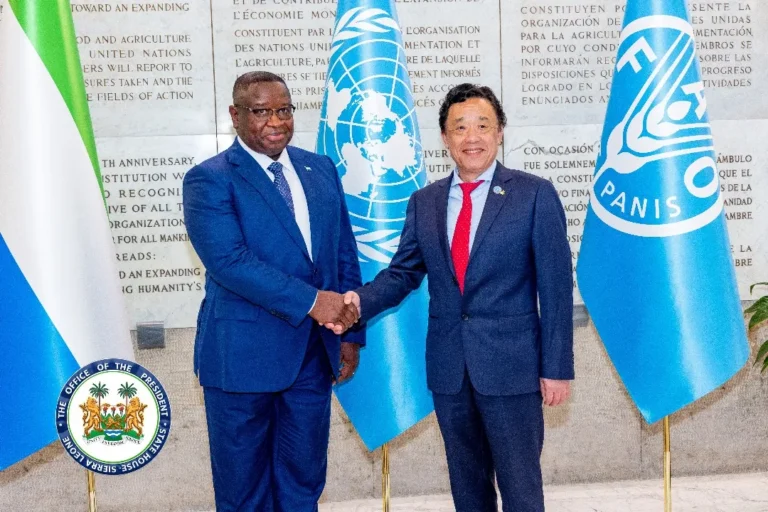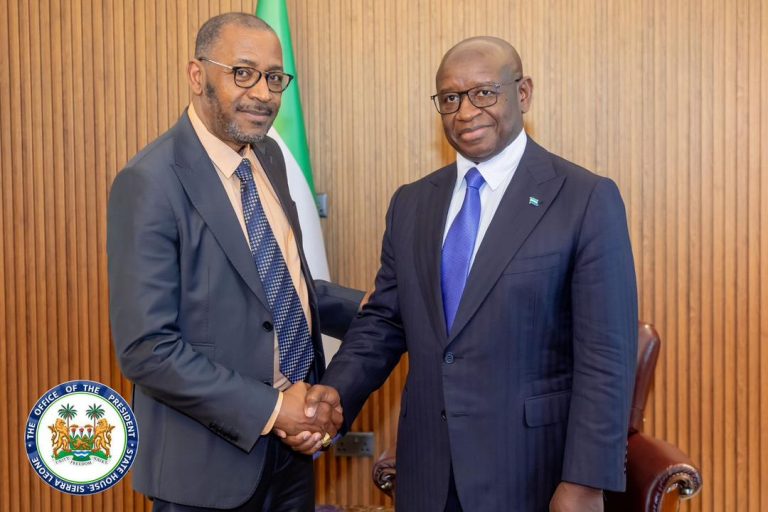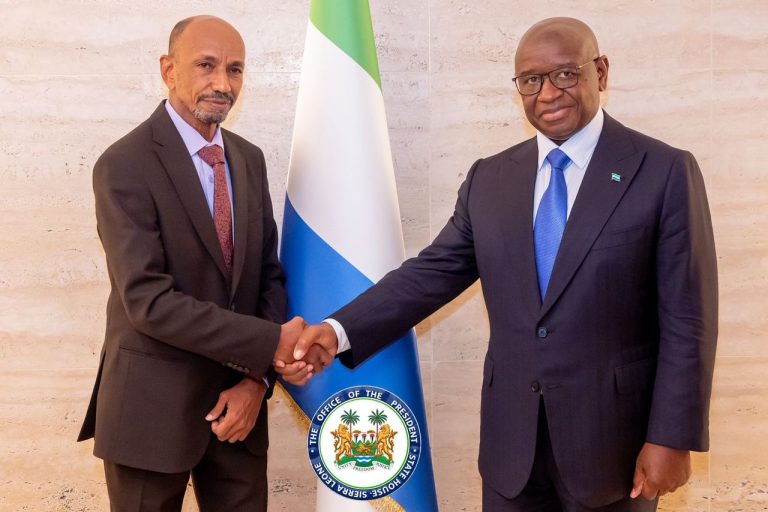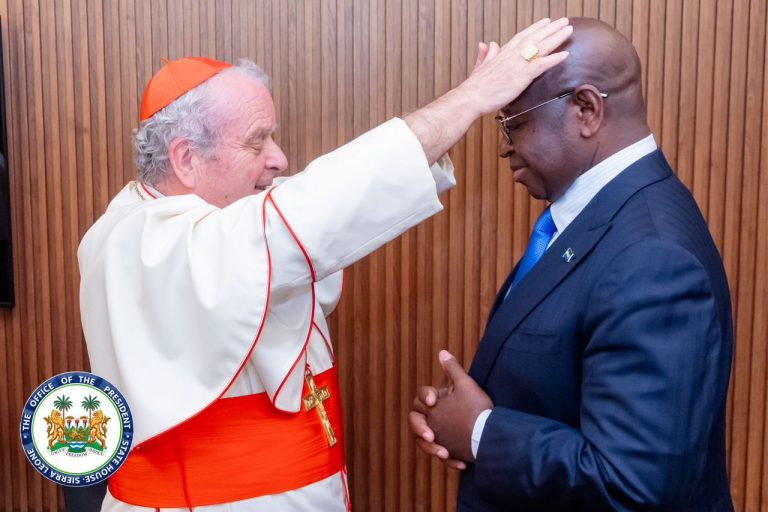Rome, Italy, 13 February, 2025 – In a strategic move to strengthen Sierra Leone’s agricultural sector, President Julius Maada Bio met with Dr. Qu Dongyu, Director-General of the Food and Agriculture Organization (FAO), in Rome to discuss FAO’s continued engagement in Sierra Leone’s food security and agricultural development agenda. The meeting underscored the pivotal role FAO plays as a key development partner, particularly in expanding investment and technical support for Sierra Leone’s flagship initiative, Feed Salone.
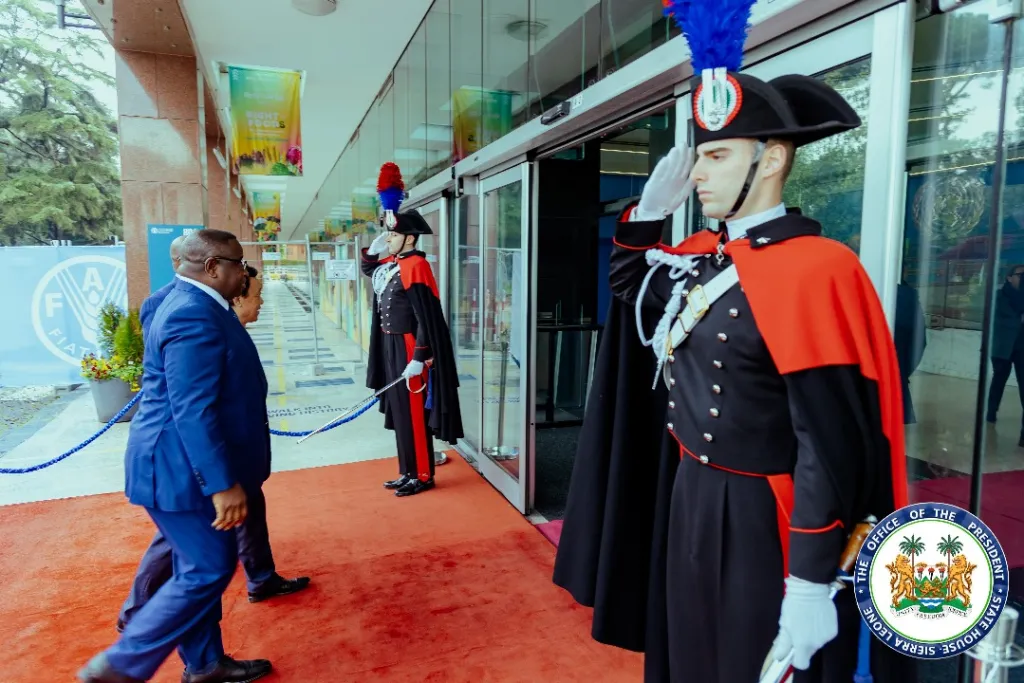
During the discussions, President Bio expressed his gratitude for FAO’s longstanding support in advancing Sierra Leone’s food systems and emphasized his administration’s commitment to repositioning agriculture as the backbone of the economy. “FAO has played a significant role in supporting our food systems efforts, and your leadership in aligning global food security priorities with the needs of developing nations like ours is commendable,” President Bio remarked.
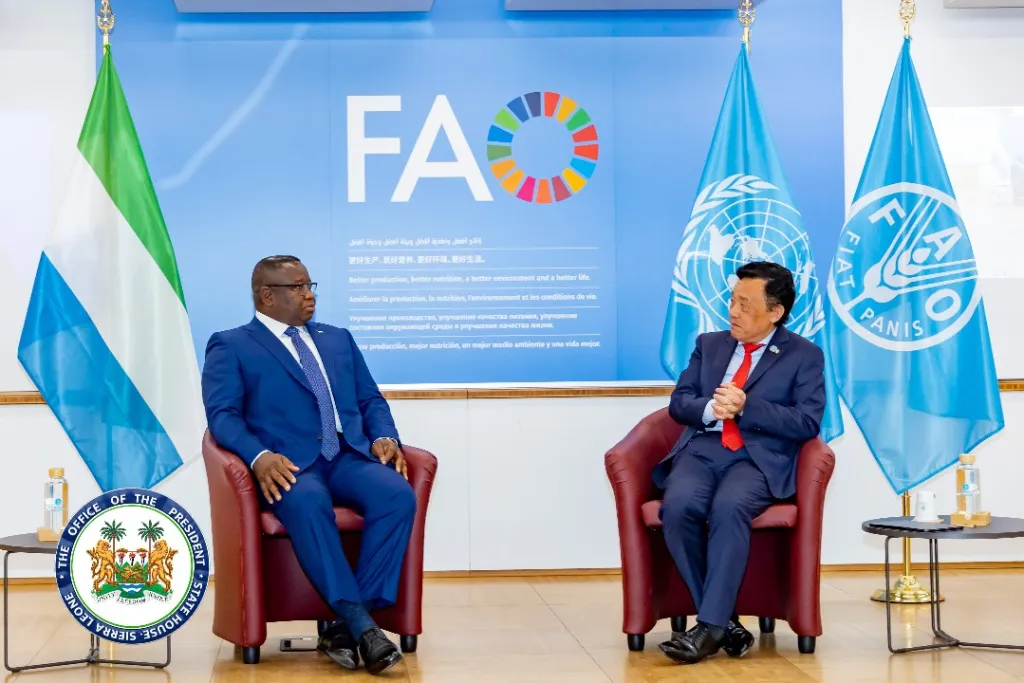
A key focus of the dialogue was FAO’s contribution to the Sustainable Agrifood System Intelligence (SASI) initiative, which has produced an operational investment plan for Feed Salone’s Pillar 3, targeting aggregation, processing, and marketing. President Bio highlighted the importance of ensuring investment flows into these areas to drive agricultural transformation and called for FAO’s continued support in investment mobilization and policy alignment.
While Sierra Leone is making significant strides in expanding domestic food production, particularly rice, post-harvest losses and limited access to improved seed varieties remain major challenges. President Bio emphasized the need for enhanced interventions in the rice sector to reduce food imports and strengthen local production and processing capacity. He acknowledged FAO’s expertise and called for strategic collaboration to address these productivity gaps.
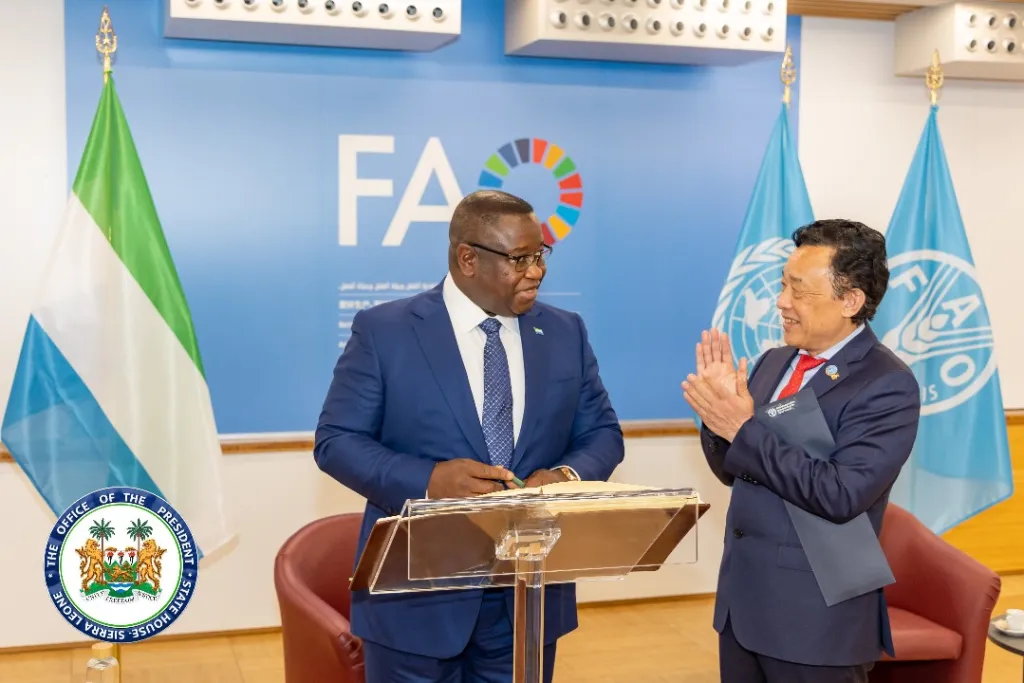
The President also underscored Sierra Leone’s renewed commitment to the South-South Triangular Cooperation Program, collaborating with China, Vietnam, and Japan to boost rice seed systems and post-harvest technologies. He encouraged FAO to facilitate this cooperation and scale up knowledge exchange, financing, and technological innovation for greater impact.
Reflecting on the growing challenges of climate change, President Bio reiterated Sierra Leone’s vulnerability to climate-related disruptions, including erratic weather patterns and soil degradation. He highlighted the need for climate-responsive agricultural financing and modern technologies to build resilience and enhance productivity. “FAO’s global leadership in climate-smart agriculture is well recognized, and we want to leverage your expertise to support our efforts in this space,” he added.
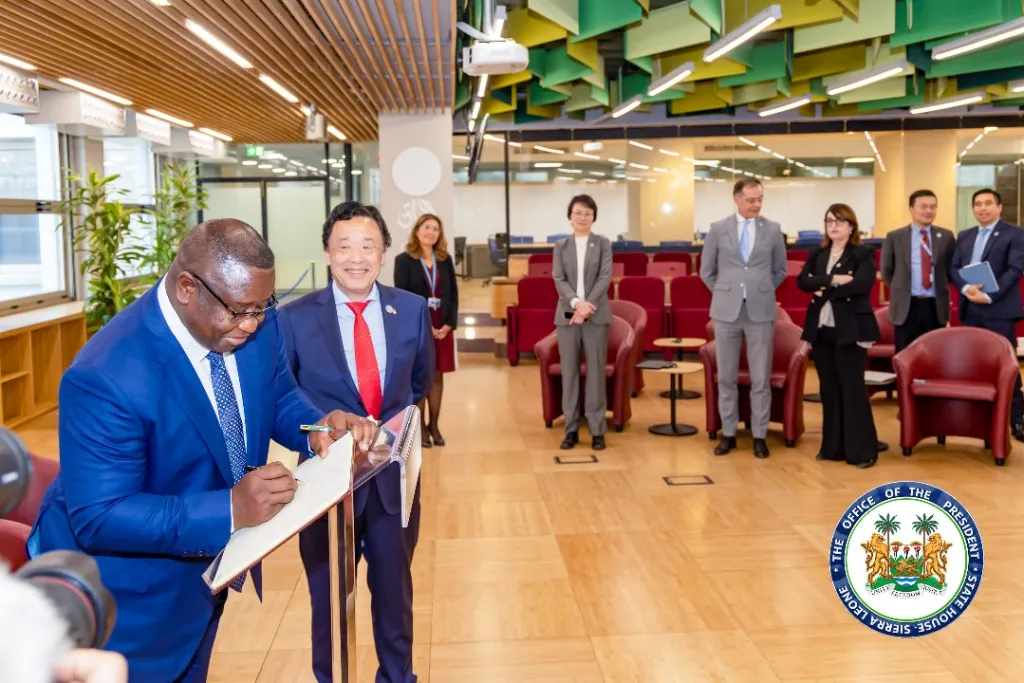
Additionally, President Bio reaffirmed his administration’s commitment to attracting private sector investment into agriculture, emphasizing the need for innovative financing models that reduce risks and unlock capital for smallholder farmers. He expressed optimism about deepening collaboration with FAO to achieve a sustainable and food-secure future for Sierra Leone.
In response, Dr. Qu Dongyu commended President Bio’s leadership and vision for agricultural transformation in Sierra Leone. He reaffirmed FAO’s commitment to supporting Feed Salone and facilitating strategic investments that would accelerate food security and economic growth in the country.
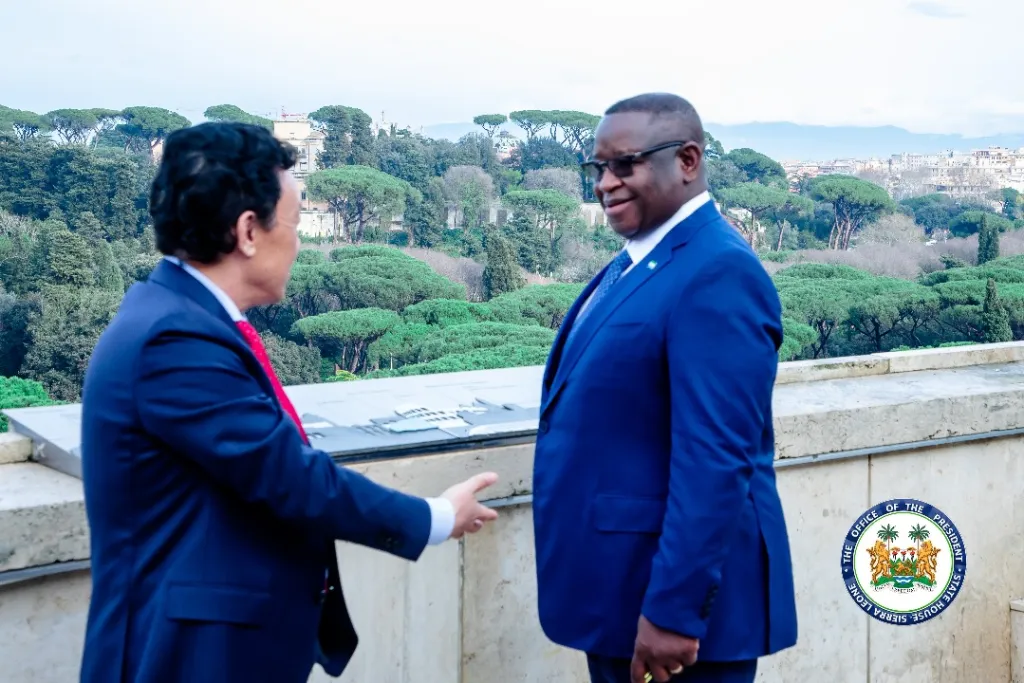
Te meeting concluded on a high note, with both leaders expressing a shared vision for enhanced agricultural productivity, sustainable food systems, and stronger South-South cooperation. As Sierra Leone continues its journey toward agricultural transformation, FAO’s role as a strategic partner remains crucial in achieving the country’s development goals.

